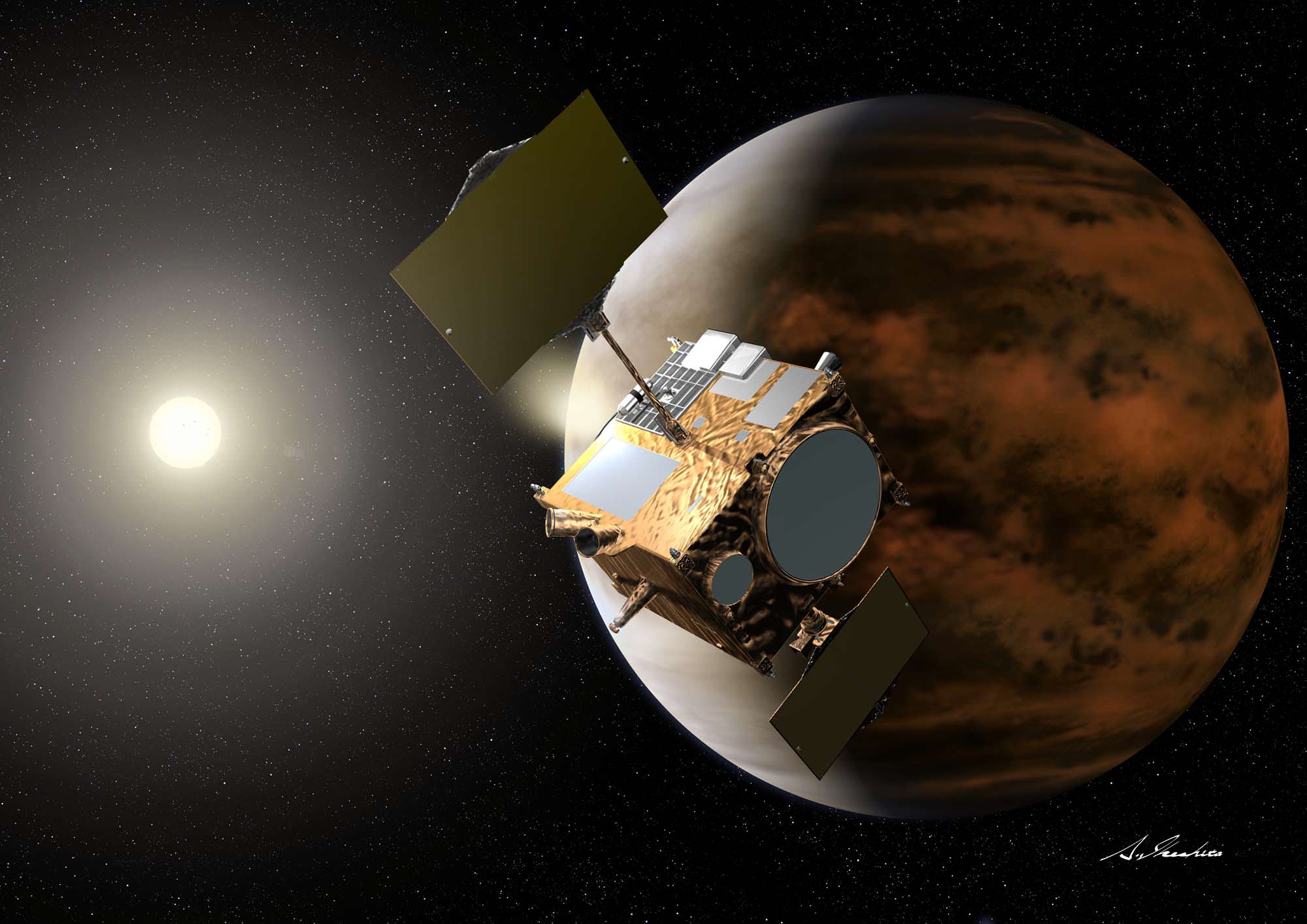JAXA announced that the Akatsuki spacecraft failed to enter orbit around Venus. The orbit insertion maneuver was performed, the space agency said in a statement, but “unfortunately, we have found that the orbiter was not injected into the planned orbit as a result of orbit estimation.” While extremely disappointing, perhaps not all is lost. If the spacecraft can be stabilized, there is a chance it could enter orbit in 6 years when it passes by Venus again.
At a press conference, project manager Masato Nakamura said (from translated reports) that the spacecraft is functioning but has put itself in a standby mode with its solar panels facing towards the Sun. It is also spinning slowly — about every 10 minutes — and radio contact is possible only for 40 seconds at a time. Engineers are using ground antennas in Japan as well as NASA’s Deep Space Network to send commands to stabilize the spacecraft and to determine its trajectory.
JAXA said they have set up an investigation team to study the cause of the failure, and will provide updates with the countermeasures and investigation results.
Japan had a similar situation occur with their Nozomi spacecraft at Mars in 2003, when they lost contact with the spacecraft just 5 days before orbit insertion around the Red Planet.
Akatsuki was launched from the Tanegashima Space Center on May 21, 2010.


Damn. Hopefully they can figure out how to make the next pass work. Sad to think of all those scientists and engineers and Akatsuki fans so disappointed!!!
BAD LUCK 🙁 But hats off to JAXA. Hope to see you succeed in more space missions soon.
Poor Jaxa, at least they didn’t lose the spacecraft.
Bugger.
Can it do any interesting research while hanging around, or will the next six years just be ‘wasted’?
LOL. 😀
Jeez – those guys can’t win a trick. Poor bastards.
Me thinks the QC at JAXA needs some looking at, or perhaps they are trying to push the technological envelope too far with each new mission. I applaud their ambition, but I think it is time they got a couple of solid planetary mission successes on the board before trying for too much too soon…
We had to learn the lesson that even very experienced space organisations like NASA, ESA and the Russion Space program can fail. In these cases much more got lost than just some operation time of a space probe.
The problem is not the hardware and the software, but the people who decide what it is to do. There you need people who thoroughly know what they do, but sometimes you have people who just think they thoroughly know what they do. If this is not fixed in due time, disaster is close by.
@Astrofiend: I think your comment is a little out of place regards the people at JAXA. You should remember that Japan does not have a huge budget for doing space exploration, after all they have no military budget, at least compared to other countries, & have done very well on what is little more than a shoestring budget. This mission, as well as the Mars one, may have failed but their Lunar probe did very well & they did incredible work in getting Hayabusa back to Earth with its precious cargo of asteroid dust.
I echoed your sentiment, howbeit phrased a little differently, on the Messenger thread earlier today.
Please God don’t let this happen to New Horizons !!!
“there is a chance it could enter orbit in 6 years when it passes by Venus again”.
So where is Akatsuki flying now? Why so long, can you explain me this?